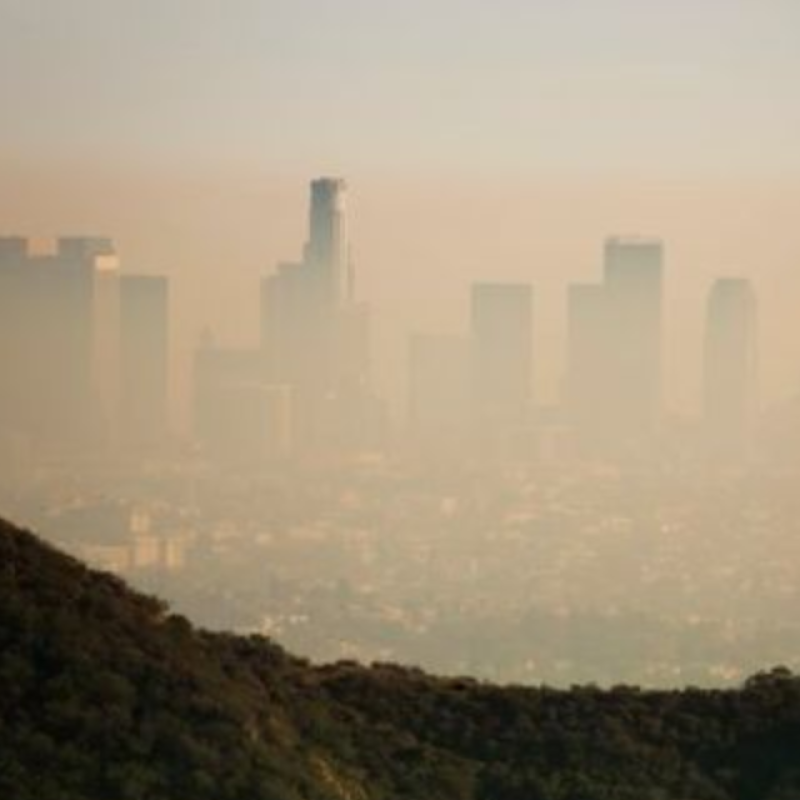California Strikes Back Against the Trump Administration’s Auto Pollution Rollback



Mary Nichols, who heads the California Air Resources Board, has vowed to fight the federal government’s proposed changes.
Eric Risberg/Associated Press
The state’s target is one of President Trump’s most consequential environmental rollbacks to date, a proposal unveiled last week to let cars pollute more while stripping California of its right to set its own air-quality rules.
The administration’s proposal “is contrary to the facts and the law,” the California document says, before refuting point by point the Trump administration’s arguments for weakening the nation’s long-term goals for making vehicles more fuel efficient and less polluting.
The clash between California and Washington threatens to throw the United States auto market into disarray. Because California has the authority under the Clean Air Act to set its own air pollution rules, and because a dozen other states follow its lead, the dispute could effectively split the nation’s market into two, one side adhering to stringent emissions rules set in Sacramento and the other to weaker federal standards.
As a first step, California plans to change its rules to declare that the federal government’s current, stricter auto-emission targets are the only ones that comply with state law — and not any future targets that are less strict.
That move collides with the administration’s plan to freeze Obama-era rules, which would have required automakers by 2025 to roughly double the fuel economy of their new cars, pickup trucks and S.U.V.s to about 36 miles per gallon. Those rules, which are aimed at cutting tailpipe emissions of carbon dioxide, a major contributor to global warming, represented one of President Barack Obama’s most significant efforts to fight climate change.
The Trump proposal would instead freeze the standards after 2021, when new cars must average around 30 miles per gallon.
The federal government’s proposal was made public last week by the Environmental Protection Agency and the Department of Transportation, along with their justifications for making the change, including the argument that forcing automakers to build cleaner cars would lead to more highway accidents and deaths. Experts have questioned that claim; in Tuesday’s report, California disputed it as well.
Weakening the national standard “could substantially slow progress toward the emission reductions needed to address the serious threat climate change poses to California, the country, and the world, waste billions of gallons of gasoline, and cost consumer money on fuel,” the state’s report said.
“They’ll just say anything to justify a weaker standard,” Mary Nichols, the state’s clean air regulator, said in a telephone interview Monday. “We want our response to be as strong and cogent as possible.”
California’s move would also unequivocally establish a separate emissions regime for the state and the 12 others that follow its standards, a coalition that covers more than 130 million residents and more than a third of the domestic auto market. Heavily Democratic California has emerged as a bulwark against the Trump administration’s policies.
Carmakers have balked at the prospect, calling for the Trump administration and California to come to terms to avoid a messy legal battle.
That looks unlikely.
“We’re going to do everything we must do to continue to move forward rather than backslide,” said Xavier Becerra, California’s attorney general.
“We have fires raging, hundreds of thousands of acres burning. We saw devastating flooding and mudslides six, seven months ago,” he said, invoking recent wildfires north of San Francisco that have killed seven people. “We see the havoc that climate change brings to the environment, and the last thing we need to do is to close our eyes to it.”
At stake is what could be President Trump’s biggest climate-policy rollback, a move that could, by 2035, increase United States greenhouse gas emissions by an amount that exceeds what some countries, such as Austria or Bangladesh, release in a year.
The extent of the rollback, and the prospect of an all-out legal battle between the Trump administration and California, has made even some automakers uneasy. On Monday morning, the Alliance of Automobile Manufacturers, the industry’s main lobby group, posted to its Twitter account the headline and link to an opinion piece titled “The Trump administration’s fuel-efficiency proposal is unnecessary and harmful.”
By Tuesday, the post had been erased. Gloria Bergquist, a spokeswoman for the Alliance, said the tweet had been a “mistake” though there were parts of the opinion piece, published by the Brookings Institution, that the group agreed with.
She added that automaker executives had urged President Trump to come to an agreement with California, and that the alliance had “raised the possible elements of a deal with both sides.”
California also said that it “has been, and remains, willing to consider well-founded and necessary changes to the program,” including allowing automakers to exploit more generous loopholes to meet the standards. But the state has maintained that the headline fuel-economy targets, and their associated reductions in greenhouse gas emissions, are not negotiable.
The Trump administration has made government deregulation a centerpiece of its policy agenda, and the auto-emissions proposal has won kudos from some staunch supporters.
“For decades, multiple administrations in Washington, D.C., allowed liberal California to dictate environmental mandates to the rest of us,” said Tim Huelskamp, president of the Heartland Institute, a libertarian think tank, in a statement last week. “Revoking Obama’s draconian fuel mileage restrictions, and California’s dubious exemption to federal standards, would make cars safer and more affordable. If adopted, this regulation would be another promise kept by President Donald Trump.”
In justifying its freeze, the Trump administration, led by officials at the Department of Transportation, put forward several arguments that contradict previous findings by its own researchers. On Tuesday, California pushed back against those arguments.
Administration officials argue, for example, that fuel-saving technologies are expensive and will make cars costlier, making it tougher for people to afford them. In its rebuttal, California cited a 2016 technical review published by Department of Transportation researchers to say that current standards “can be readily met at the same or lower cost than originally projected” with advanced gasoline engines and transmissions.
The Trump administration also says that scrapping the Obama-era standards after 2021 would prevent road-accident fatalities (more than 12,700 deaths over the following decade) compared with keeping the standards in place. Among the reasons put forward: People who buy fuel-efficient cars will drive more, increasing the odds that they will get caught in an accident.
California disputed that, saying that any negative effects would be “outweighed by the reduced impacts to health and mortality” from tailpipe pollutants if stricter standards were upheld.
The state is “refuting the counterintuitive and counterfactual arguments from the Trump administration that weaker emissions standards are good for public health and safety,” said Michael Gerrard, an expert in environmental law at Columbia Law School.
California has long set its own air quality regulations, so when the federal Clean Air Act was passed decades ago, it enshrined the state’s right to continue making its own rules. In 2009 President Obama began an effort to revise the federal standards in order to harmonize a mishmash of greenhouse-gas and fuel-economy standards set by federal agencies and California. For the first time, California allowed cars that complied with federal emissions rules to also be deemed as meeting California standards.
The state has threatened to sue to protect its authority to write its own air quality rules. And California is readying a separate set of official comments on the Trump administration’s proposed rollback, which it will submit as part of a 60-day public comment process on those rules.
California is preparing for the worst, experts say, namely the Trump administration’s freeze of federal rules, along with its plan to eliminate California’s right to set its own pollution rules, said Ann Carlson, professor of environmental law at the U.C.L.A. School of Law. The state would then likely go to court to defend that waiver.
With Tuesday’s statement, California is “making sure its i’s are dotted and its t’s are crossed,” Ms. Carlson said. “They don’t want any confusion on this question.”
There are links in the Original Article that have not been recopied here.
Tags









